On the 15th of October our book “Real Fake – Playing with Reality in the Age of AI, Deepfakes and the Metaverse” has been released. It is our take on synthetic media, deepfakes, fake news, conspiracy theories, memes, crypto, narrative economics, virtual humans, CGI influencers, vTubers, NFTs, DAOs, VR, Web 3.0, the Creator Economy and the Metaverse. Real Fake is about how humans continuously manipulate reality and how new digital technology tools enable us to go one step further in this ancient game.
Super-Apps Are Inevitable

“A super-app is a single mobile app that offers basic services including chat and payments, along with a suite of “mini-apps” from third parties, ranging from stores and restaurants to government agencies. Westerners aren’t familiar with them, but across much of Asia, super-apps are the internet. The largest is China’s WeChat, possibly the most heavily used piece of software on the planet. On WeChat, you can find a date, hail a cab, pay utilities, even get divorced. An app reaches super status when it knits together a critical mass of services and makes them addictively easy to toggle among, even if they aren’t as good as sole-purpose apps. The more services, the stickier and more lucrative.”
Three Steps To The Future
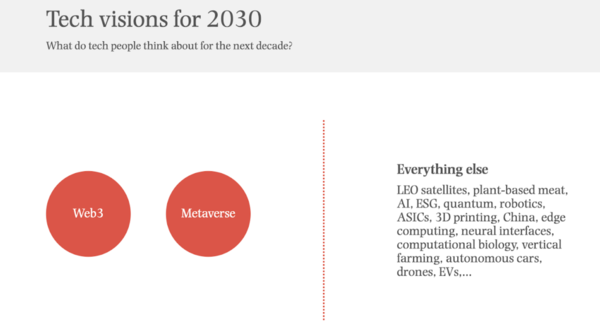
Every year, Ben Evans produces a big presentation exploring macro and strategic trends in the tech industry. This year’s presentation is called: ‘Three Steps to the Future’. It covers the most exciting themes in technology today that are transformative visions for 2025 or 2030: crypto, web3, VR, metaverse… and then everything else.
A must read for everybody!
Welcome to ‘Web3.’ What’s That?
“There are now thousands of different blockchain-based tokens, circulating continuously on venues with varying degrees of regulation and oversight. This is what is known as “web3,” the name adopted for a decentralized internet run on crypto tokens. Supporters say it will democratize everything, reshaping art, commerce and technology; displacing intermediaries; and putting people more directly in control of their destinies. […] If that sounds far-fetched, consider that venture capitalists have invested more than $27 billion in crypto and related projects this year, more than the previous 10 years combined. The biggest investors and industry players are also lobbying in Washington to influence rules that would favor their futuristic view of tokenomics, which can already be seen in some burgeoning communities where web3 is not some abstract concept but a feature of daily life.”
Is Web 3.0 Bullshit?
“Is web3 bullshit? The hazy vision of new decentralized internet, built on the blockchain, to succeed the “Web 2.0” of Google and Facebook seems to be reaching a threshold of ambient cultural awareness such that non-tech pundits, news-engaged normies, magazine editors, uncles, online attention-seekers etc., feel the need to weigh in on the question.“
We have always wanted to decentralize the internet, but every time we ended up with large institutions that made huge amounts of money because they became the de facto centralized node of the network. The whole discussion about Web 3.0 is now being hijacked by the same Silicon Valley companies and investors that builded the previous version. Can we trust them?
The Metaverse Is Coming, And the World Is Not Ready for It
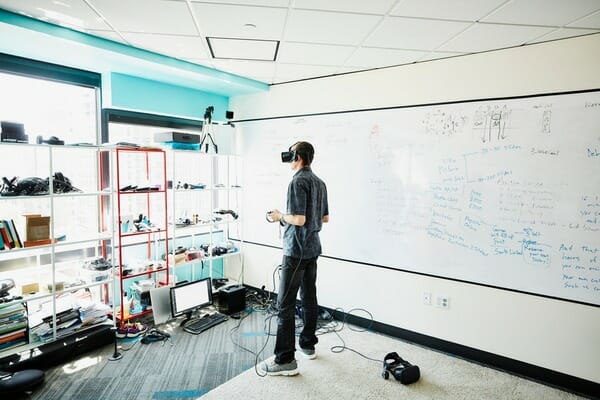
“The supranational nature of the metaverse — where real-world borders become far less relevant — could revolutionize the way that individuals perceive and interact with nation-states. A failure to anticipate these possibilities may put the global world order at risk of being replaced by a virtual, and perhaps less virtuous, one.”
Crypto Produces Artificial Scarcity

“Crypto has developed tools to create scarce claims on computerized representations of memes, to create scarce tradable claims on societal attention. […] Digital scarcity is an anti human evolution ideology that imposes board game-like rules which serve no purpose than to preserve the game itself. […] But the other way to put that is that people do seem to enjoy status-competition and gambling games, they get some value out of them, and artificial scarcity allows them to play a lot more of those games, thus increasing human happiness, or something.”
So is this extremely stupid or not?
The Meme Stock

“Human life is lived, increasingly, online. If you are a person living in an advanced economy with a certain amount of money to invest, the odds are pretty good that your work consists largely of sitting in front of a computer and typing, and that your social life, particularly during the long Covid-19 pandemic, consists largely of sitting in front of a phone and typing. Maybe this is just a bad thing, and the world is getting worse and less meaningful and more isolating. But people do ascribe a lot of value and meaning to their online interactions. Modern life being what it is, if you ascribe value to something, you can put a price on it and trade it on an exchange and maybe have a nice little bubble.”
This is exactly the point we are making in our book Real Fake. In the era of synthetic media, crypto media and the Metaverse, Fake has more value than the Real thing.
The Financialization of Everything

“Social tokens are part of a broader and fundamentally positive phenomenon: everyone is becoming an investor. […] More and more of the world is becoming financialized, allowing people to invest not just in companies or government bonds but also in art, collectibles, and celebrities. Parallel shifts in culture and technology are forging a new paradigm. The rules around how we create and capture economic value are being rewritten, opening up new roads to the kind of wealth creation previously limited to a select few. […] This new era of cultural liquidity reorients access to capital. […] We’re now shifting to an economic era of the web, one in which everyone is an investor.”
Money for Everything: A Future Where Every Inch of Culture Is Monetized
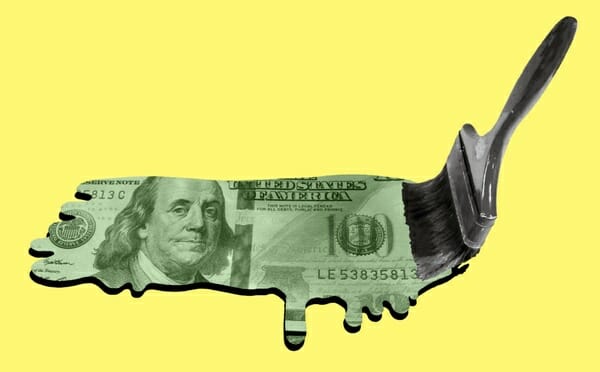
“One of the things cryptocurrencies do extremely well – for better or worse – is ascribe monetary value to things we didn’t previously understand as being worth money. […] Crypto can turn some of those passive efforts – scrolling, exploring, socializing – into financial transactions. What would it mean to live in a world where every single image, song, health record, Twitter “like” and blog post has a discrete token attached?”
The Escapist Fantasy of NFT Games Is Capitalism

“A new buzzword is haunting the cryptocurrency world: play-to-earn. The term designates a category of increasingly popular games that leverage blockchain technology to reward players with digital objects of real-world—or at least crypto-world—financial value.”
How To Meme A Painting

“How can a physical artwork become an NFT? One new company has just spent $12.9 million on a Banksy in an attempt to try out a new way of converting the real into the virtual.”
Read more. Also visit the website of Particle, the company that sells pieces of artworks as NFTs.
How NFTs Will Kill Netflix
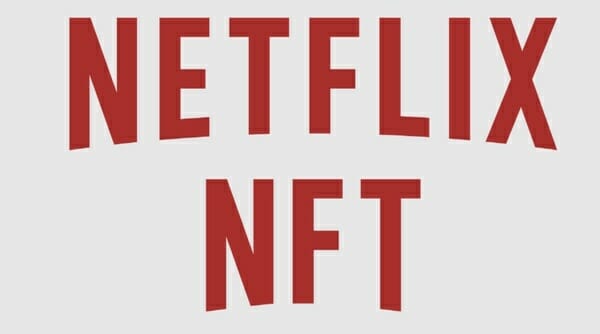
“The best argument I’ve heard for NFTs is that they give creators the ability to retain ownership of their creations, make money, and get credit. […] The more sustainable and revolutionary aspect of all this is the way NFT technology can be used almost like a benevolent, and surveillance-free form of digital rights management for independent creators. […] A new world of NFT-based media may liberate us all to watch just the things we want. No more Netflix or Amazon subscription; I just buy my NFT version of a show via blockchain, straight from the creator. But it’s going to make for an almost unfathomably vast, unnavigable sea of individual offerings. It’s hard enough to find things now. And if we need to make a monetary choice every time we do the digital equivalent of flipping the channel — or maybe after a short preview — it turns an evening of viewing or reading into a series of purchasing decisions.”
Scorsese Producer To Make First Hollywood Movie Funded By NFTs

“The executive producer behind blockbusters including Martin Scorsese’s The Irishman is to make Hollywood’s first feature film funded entirely by non-fungible tokens (NFTs), with a promise that those who invest will get a share of any profits and meet the stars of the production.”
Balenciaga to Launch Metaverse Business Unit
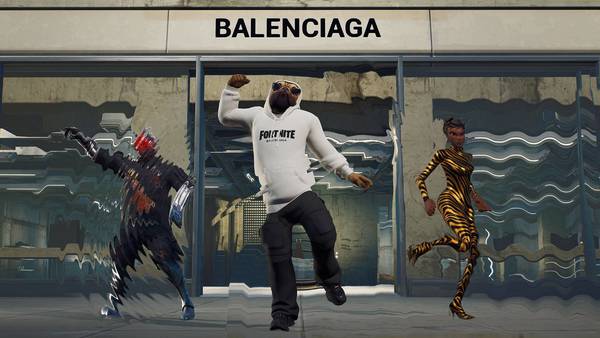
“Now, as pillars of modern life, from work to dating, become increasingly digital, chief executive Cédric Charbit, sees more opportunities on the horizon for fashion brands to engage with consumers in the coming metaverse.”

 English | EN
English | EN 